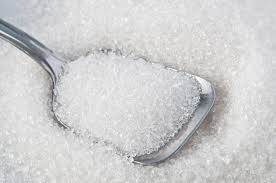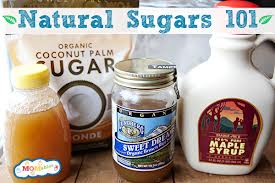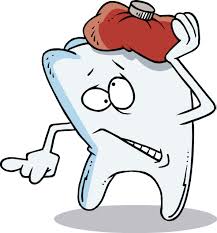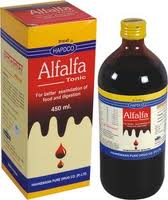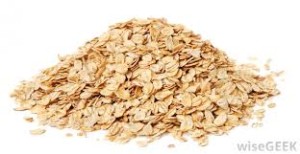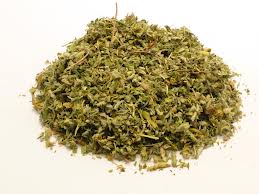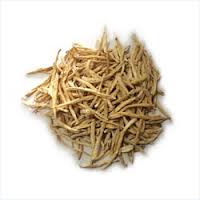Hi all, I hope you all had a nice weekend. Today I am about to bring about a controversial topic to the fore. It is unfortunately not given that much attention that it deserves. The Sugar lobbies are powerful all over the world and they have an unholy nexus with the “Powers That Be” and the truth is never fully told. The object of this blog is just to present the dangerous side effects of refined sugar and let you make the right choice so that you lead a healthy and a holistic life. Happy reading!
Introduction:
Did you know that “30%–40% of healthcare expenditures in the USA go to help address issues that are closely tied to the excess consumption of sugar?” This actually means that addiction to sugar in the US results in $1 trillion in health care costs per year that could be totally avoidable.
Did you know that Coronary heart disease, Cancer, Obesity, Diabetes Type II and the metabolic syndrome could be linked with excessive consumption of sugar?
Our sugar consumption has hit the roof. Americans are eating more sugar than their ancestors. The exact figure is not known but it is estimated that it is over120 pounds per person per year and that is an awful lot.
Excessive Sugar intake could be an addiction:
“I have a sweet tooth” is a commonly used expression In fact; many medical researchers have documented the links between sugar and addiction. Excessive sugar intake causes serious dependence and that the removal of sugar creates withdrawal symptoms.
The real problem lies in refining the sugar:
Man has tampered with sugar by refining it. Refined sugar is bereft essential vitamins and micro nutrients such as, B-1, B-2, biotin, niacin, pantothenic acid, magnesium, and others. The body is now forced to burn this fuel without the help of the vitamins and micro nutrients and this causes a strain on the body, as it has to depend on its own store of vitamins and micro nutrients, which get depleted. Thus, long-term intake of refined or ‘naked’ sugar causes stress on the body by sapping it of its internal resources of nutrients and sub-clinical deficiencies occur. Refined sugar also lacks water and fiber
When refined sugar enters our system, the blood sugar rises and the body stores this sugar in the muscle cells and brain cells. It is converted into FAT. That is why refined sugar intake is associated with obesity. In addition the body over reacts to refined sugar causing your blood sugar to drop too quickly. Then you feel bad, with symptoms such as headache, irritability, fatigue, and abdominal pains, muddled thinking, even blurred vision, depression and other symptoms suggestive of low blood sugar. This is the root cause for sugar craving or sugar addiction.
Refined sugar is dangerous:
- Sugar has been proven to destroy the germ-killing ability of white blood cells for up to five hours after ingestion.
- It reduces the production of antibodies, proteins that combine with and inactivate foreign invaders in the body.
- It interferes with the transport of vitamin C, one of the most important nutrients for all facets of immune function.
- It causes mineral imbalances and sometimes it causes allergic reactions, which weaken the immune system.
- It neutralizes the action of essential fatty acids, thus making cells more permeable to invasion by allergens and microorganisms.
Sugar can cause many health problems:
When you read the list of diseases that refined sugar can cause, hold on tight to your chairs. You might want to fall off. Refined sugar intake can cause the following diseases:
- Acne
- Addiction to drugs, caffeine & food, Anxiety, Alcoholism, Behavior problems, Emotional problems, Binge eating, Difficulty concentrating, Mental illness, Mood swings
- Allergies and Asthma
- Arthritis, Bone loss, Gout and Osteoporosis
- Cancer (cancer cells feed on sugar)
- Candidiasis, Eczema, Vaginal yeast infections and Psoriasis
- Cardiovascular disease and High blood pressure
- Cataracts
- Colitis. Constipation, diverticulosis, Impaired digestion of all foods
- Indigestion
- Diabetes, Endocrine gland dysfunction
- Gallstones
- High blood cholesterol High estrogen levels and Hormonal problems and Menstrual difficulties
- Hypoglycemia
- Insomnia
- Kidney stones
- Liver dysfunction
- Shortened life span
- Tooth decay
Artificial sugar substitutes:
Some of the artificial sweeteners are Aspartame (NutraSweet, Equal), Saccharin (Sweet’N Low, SugarTwin), Acesulfame K (Sunett, Sweet One), Sucralose (Splenda) and Neotame.
They are not totally safe. They are known to cause you to overeat. Some of them are said to be carcinogenic.
Natural sugar substitutes:
They are safer and natural and one can make great sweets with them.
Stevia is a very sweet herb from South America that’s available in powder and liquid form at health-food stores. Stevia with FOS is a nonnutritive powder found at health-food stores or in the health-food section of your grocery store. FOS stands for fruit ogiliosaccharides, which are beneficial for and support healthy intestinal bacteria, or flora.
Single blossom honey, such as red clover honey, or orange blossom honey is low-glycemic. You can comfortably use this to sweeten your beverages.
Xylitol is birch sugar, can be used for baking and sweetening beverages. Xylitol is low-glycemic and healthy for you. It doesn’t cause blood sugar imbalances or yeast overgrowth like table sugar. It’s thought to promote bone health and prevent tooth decay and plaque buildup. The only drawback is that if you eat too much, you could experience gastrointestinal discomfort and diarrhea
Fructose is a natural low-glycemic sugar that’s found in fruit. Fructose is sweeter than regular table sugar, so you need less. The high fructose corn syrup can elevate the lipid levels and increase the risk of heart disease.
Sucrose is regular table sugar and it is medium-glycemic and fine for most people if you consume small amounts, as in sweetening your coffee.
Sugar and the Environment:
Sugar production also causes stress on our natural environment. The relationship between sugar production and environmental damage is found in deforestation, soil erosion, and consequent bio-diversity loss caused by forest conversion to sugar cane field. Forest clearing caused widespread soil erosion and had a devastating effect on the ecology, wiping out a third to a half of the known species of snail and birds.
Conclusion:
Excess sugar ingestion is rampant in today’s society. We are eating sugar in foods that don’t even warrant sweeteners. Sugary drinks and candies thrive in the business world. But this excess sugar has saddled us with alarming health risks like obesity and diabetes.
The truth is, all this sugar doesn’t have to be a part of our everyday life. We can dump sugary products and take up a diet focused on nutrient-rich natural foods. Diets centered on vegetables, legumes and whole grains provide everything a body needs for optimal health, and helps to suppress the addictive desire for sweets.
References and links:
